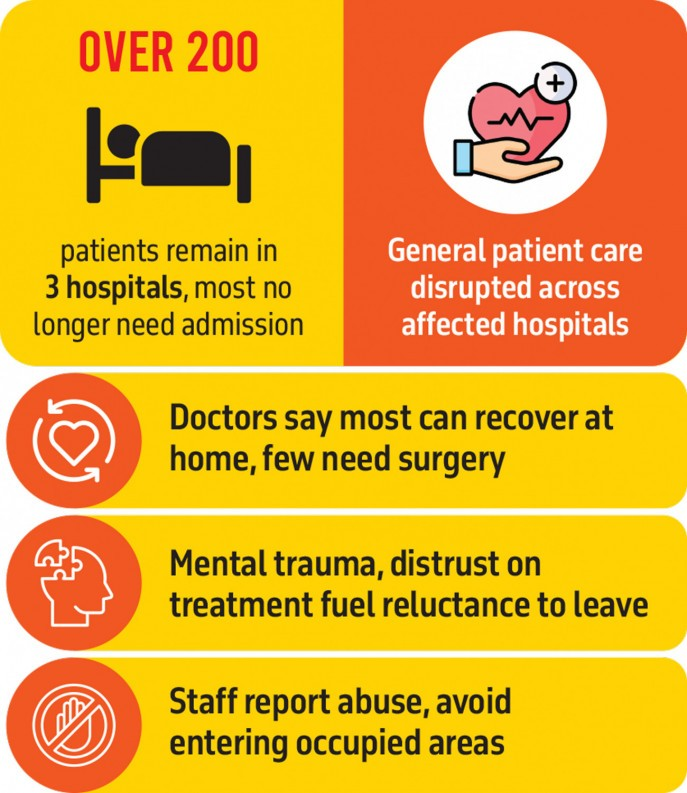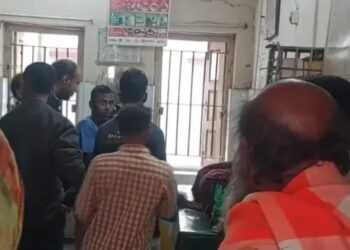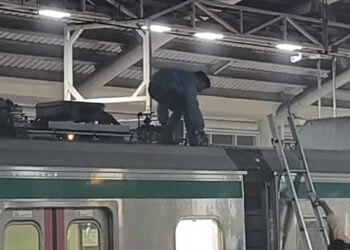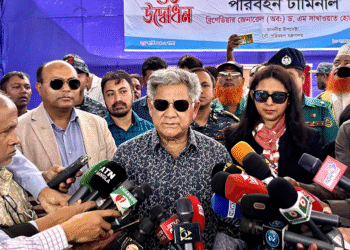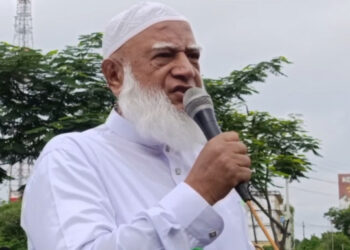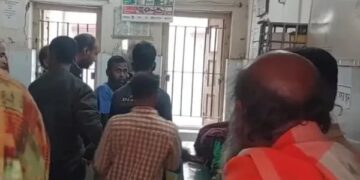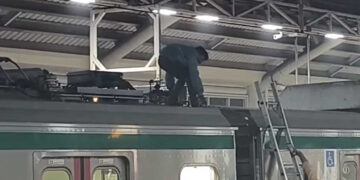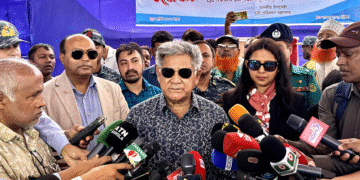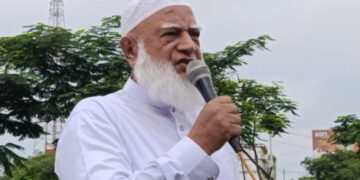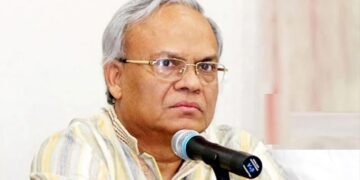Over 200 patients still in three hospitals
More than half of the 1,400 people injured in the July movement have already returned home after treatment. But about 200 people are still staying in three hospitals even after receiving discharge papers, according to information from the hospitals and the Ministry of Health.
Eye Hospital Services Shut for 14 Days
The country’s only specialized eye hospital – National Institute of Ophthalmology and Hospital (NIOH) – has been closed for 14 days. Since May 28, it has only been treating the injured from the July movement. The hospital has been providing food to these patients. Though the Ministry of Health ordered the hospital to fully reopen from Saturday, it is still uncertain whether regular services will begin soon.
Other Hospitals Also Facing Similar Issues
Two other hospitals are facing the same problem: the cabin block of Bangladesh Medical University (BMU) and two wards of the National Institute of Traumatology and Orthopaedic Rehabilitation (NITOR).
Hospital officials said many patients have refused to leave even after being cleared for discharge. As a result, these hospitals are now under pressure and unable to provide services to regular patients.
Read More: Meat Consumption in Eid vs Rest of the Year
Patients Refuse to Leave Even After Recovery
According to hospital and health ministry data, most of the current patients do not need to stay in the hospital anymore. Many have received discharge papers more than once but are still staying. Even some who went home for Eid now want to return.
Normal Patients Can’t Get Beds
Due to this situation, regular patients are not getting admitted. Hospital staff have complained that some of the July protesters are behaving rudely with doctors, nurses, and other workers, making the situation worse.
Patients Lock Themselves in Wards
At the Eye Hospital, some patients have locked themselves inside a ward on the 4th floor. They are not communicating with hospital staff except during mealtimes, when they collect their food. Staff cannot confirm how many are inside.
Protesters Say They Are Not Occupying Hospitals
Injured protester Hillol, who left the Eye Hospital a month ago, denied the claim that they are occupying the hospital. He said they are being forced to stay due to health problems. He added that some people had to return due to pain, and even had their eyes removed. He said they want to leave but are not getting clear answers from doctors.
Doctors Say Patients Can Continue Treatment from Home
Dr. Jane Alam, acting director of the Eye Hospital, said the hospital is trying to bring back confidence among staff. On Tuesday morning, five patients took food, but they kept their ward locked. He said the top eye doctors of the country already checked these patients and said they do not need hospital admission anymore and can continue treatment from home or nearby eye clinics.
Hospitals Stuck in a Difficult Position
Dr. Md. Abul Kenan, director of NITOR, said the injured protesters made sacrifices for the country, so they cannot be ignored. However, keeping them in the hospital without need is also not right. Currently, 31 patients are admitted at NITOR. Most of them can be treated at home and just need to visit the hospital for follow-ups. Only a few need surgeries.
During Eid, there were 74 such patients at NITOR, most of whom have now left, but some still remain, and some want to return after Eid.
Patients Don’t Trust Local Treatment
Dr. Kenan said many injured people don’t trust local treatment and want to go abroad. But to send them abroad, patients need to be observed for 6 to 9 months. Without that, surgeries abroad could be delayed and cost more. He said patients do not want to wait that long.
Hospital Becoming a “Club” for Protesters
At BMU, 56 protesters are occupying two floors of the cabin block. Although there are 80 cabins, no regular patients can be admitted. Dr. Sayedur Rahman, special assistant to the Prime Minister’s Health Adviser, said the protesters are not accepting any offers of work or relocation. The hospital has become more like a social club and gathering place.
No Space for New Patients
Even after getting discharge papers, protesters are not leaving, keeping the beds full. This has made doctors and nurses uncomfortable. Dr. Sayedur said the government can provide jobs or rehabilitation, but cannot offer housing in Dhaka, which is not realistic.
Doctors Don’t Know What to Do
He added that in Bangladesh, no one is ever forced out of a hospital. But when people won’t leave even after recovery, it is difficult to decide what to do. Emergency and outpatient services have now resumed partially at the Eye Hospital.
Some Protesters Want to Go to the US
At NITOR, some patients said they want to go to the United States. One patient even tried to commit suicide outside the director’s office recently.
Financial and Medical Support Already Given
Dr. Sayedur said the July movement is a unique event in the country’s history. Unlike freedom fighters, who waited 30 years to receive support, these injured protesters got financial aid quickly. So far, 80% have received support. Others will receive it by July. Fifty-four people have already gone abroad for treatment, and 17 are on a waiting list. The government has not failed in providing medical help.
Source: TBS

